
Therapists need a laptop that is reliable, powerful, and lightweight enough to carry from one place to another. Here are five of the best laptops for therapists who need a reliable laptop to perform their job.
Content of the page
| Feature | 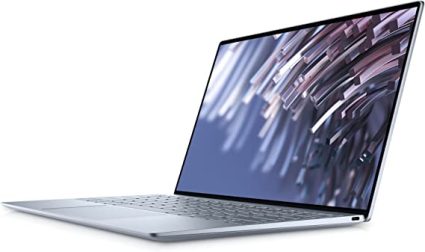
Dell XPS 13 |
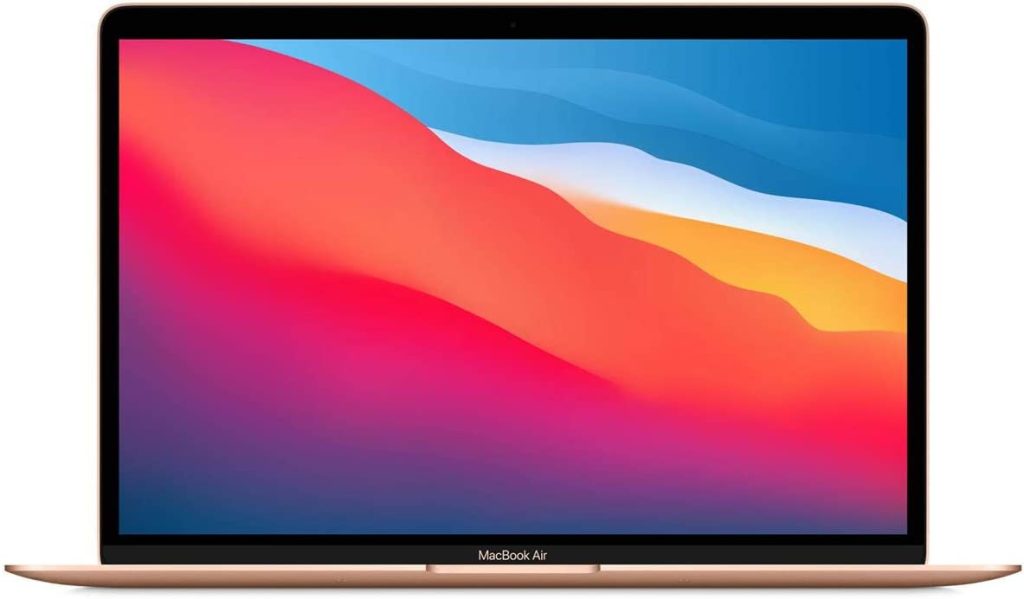
MacBook Air M1 |
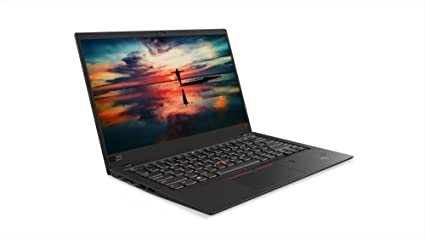
Lenovo ThinkPad X1 Carbon |
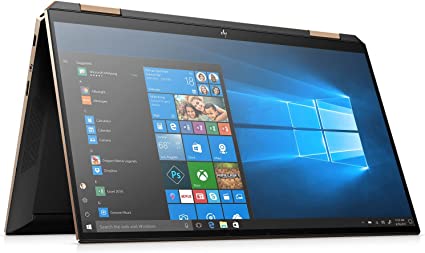
HP Spectre x360 |
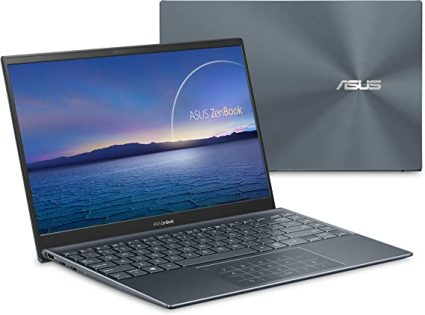
ASUS ZenBook 14 |
|---|---|---|---|---|---|
| Processor | Intel Core i3/i5/i7 11th gen | Apple M1 chip | Intel Core i5/i7 11th gen | Intel Core i7 11th gen | Intel Core i5/i7 11th gen |
| Graphics | Intel Iris Xe Graphics | Apple M1 integrated GPU | Intel Iris Xe Graphics | Intel Iris Xe Graphics | Intel Iris Xe Graphics |
| Display | 13.4-inch FHD+ or UHD+ touchscreen | 13.3-inch Retina display with True Tone | 14-inch FHD+ or UHD+ touchscreen | 13.3-inch FHD or UHD touchscreen | 14-inch FHD or UHD touchscreen |
| Memory | 8GB/16GB/32GB LPDDR4x RAM | 8GB/16GB unified memory | 8GB/16GB/32GB LPDDR4x RAM | 8GB/16GB/32GB LPDDR4x RAM | 8GB/16GB LPDDR4x RAM |
| Storage | 256GB/512GB/1TB/2TB PCIe SSD | 256GB/512GB/1TB/2TB PCIe SSD | 256GB/512GB/1TB PCIe SSD | 512GB/1TB/2TB PCIe SSD | 512GB/1TB PCIe SSD |
| Battery Life | Up to 14 hours | Up to 15 hours | Up to 16 hours | Up to 10 hours | Up to 12 hours |
| Ports | 2x Thunderbolt 4, microSD card reader | 2x Thunderbolt 3/USB-C, 3.5mm headphone jack | 2x Thunderbolt 4, HDMI 2.0, 3.5mm headphone jack | 2x Thunderbolt 4, USB-A, HDMI 2.0, microSD card reader, 3.5mm headphone jack | 2x Thunderbolt 4, HDMI 2.0, USB-A, microSD card reader, 3.5mm headphone jack |
| Weight | 2.8 pounds (1.27kg) | 2.8 pounds (1.29kg) | 2.4 pounds (1.09kg) | 2.87 pounds (1.3kg) | 2.78 pounds (1.26kg) |
1. Dell XPS 13: The Perfect Balance of Performance and Portability

Features :
| Brand | Dell |
| Model | XPS 13 7390 |
| Processor | 10th Gen Intel Core i5-10210U |
| Graphics | Intel UHD Graphics |
| Display | 13.3″ FHD InfinityEdge Touchscreen, 1920 x 1080 resolution |
| Memory | 8GB LPDDR3 |
| Storage | 256GB PCIe SSD |
| Battery life | Up to 12 hours |
| Operating system | Windows 10 Home |
| Weight | 2.7 lbs |
| Dimensions | 11.9″ x 7.8″ x 0.46″ |
| Ports | 2x Thunderbolt 3, 1x microSD card reader, 1x 3.5mm headphone/microphone combo jack |
| Wireless connectivity | Killer Wi-Fi 6 AX1650 (2×2), Bluetooth 5.0 |
| Camera | HD webcam with IR |
| Keyboard | Backlit keyboard |
| Security | Fingerprint reader, Windows Hello facial recognition |
The Dell XPS 13 is a great choice for therapists who need a powerful laptop that’s still easy to carry around. It offers fast performance thanks to its 10th Gen Intel Core i5 processor and Intel UHD Graphics. It also has an impressive battery life of up to 12 hours, so you can work on the go without worrying about running out of power. The laptop is also lightweight and thin, making it easy to take with you wherever you go. It has a beautiful 13-inch FHD display with a narrow bezel, so you can enjoy a clear and vibrant picture. The laptop also has a backlit keyboard that makes it easier to work in low light conditions. Finally, it has a range of ports, including two Thunderbolt 3 ports and USB-C ports, so you can easily connect to external devices.
Pros:
- Lightweight and thin design: The Dell XPS 13 is one of the lightest and thinnest laptops on the market. It weighs just 2.7 pounds and is only 0.7 inches thick, making it perfect for therapists who need to take their laptop to multiple locations.
- Powerful performance: The Dell XPS 13 is powered by Intel’s 10th generation processors, meaning it can handle any task you throw at it. The laptop also comes with 8GB of RAM and up to 512GB of storage, making it more than capable of running multiple programs and storing files.
- Excellent battery life: The Dell XPS 13 has an excellent battery life, with up to 13 hours of use on a single charge. This makes it perfect for therapists who need to be able to use their laptop for a long period of time without needing to recharge.
Cons:
- Expensive: The Dell XPS 13 is one of the most expensive laptops on the market. It can cost up to $1,500, making it out of reach for some therapists.
- Lack of ports: The Dell XPS 13 has a limited selection of ports, with only two USB-C ports and one USB-A port. This may be an issue for therapists who need to connect multiple devices to their laptop.
2. MacBook Air M1: Best Laptop for macOS Users
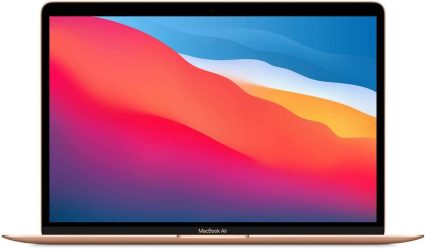
Features :
| Brand | Apple |
| Model | MacBook Air with Retina Display |
| Processor | Apple M1 chip with 8-core CPU and 7-core GPU |
| Graphics | Integrated Apple M1 graphics |
| Display | 13.3″ Retina Display with True Tone, 2560 x 1600 resolution |
| Memory | 8GB unified memory |
| Storage | 256GB SSD |
| Battery life | Up to 18 hours |
| Operating system | macOS |
| Weight | 2.8 lbs |
| Dimensions | 11.97″ x 8.36″ x 0.63″ |
| Ports | 2x Thunderbolt 3 (USB-C) ports |
| Wireless connectivity | Wi-Fi 6 (802.11ax), Bluetooth 5.0 |
| Camera | 720p FaceTime HD camera |
| Keyboard | Backlit Magic Keyboard |
| Security | Touch ID |
The MacBook Air M1 is the perfect laptop for therapists who need a powerful machine that runs macOS. It’s equipped with the latest M1 chip, which gives it amazing performance and battery life. It also has an impressive 13.3-inch Retina display with a resolution of 2560 x 1600, so you can enjoy a clear and vibrant picture. The laptop is also incredibly thin and light, so you can easily take it with you wherever you go. Plus, it has a range of ports, including two Thunderbolt 3 ports and USB-C ports, so you can easily connect to external devices. Finally, the laptop has a backlit Magic Keyboard, so you can work in low light conditions.
Pros:
- Lightweight design: The MacBook Air M1 is one of the lightest laptops on the market. It weighs just 2.8 pounds and is only 0.6 inches thick, making it perfect for therapists who need to take their laptop on the go.
- Powerful performance: The MacBook Air M1 is powered by the new M1 processor, which is one of the most powerful processors on the market. It also comes with 8GB of RAM and up to 2TB of storage, making it more than capable of running multiple programs and storing files.
- Excellent battery life: The MacBook Air M1 has an excellent battery life, with up to 20 hours of use on a single charge. This makes it perfect for therapists who need to be able to use their laptop for a long period of time without needing to recharge.
Cons:
- Expensive: The MacBook Air M1 is one of the most expensive laptops on the market. It can cost up to $1,900, making it out of reach for some therapists.
- Lack of ports: The MacBook Air M1 has a limited selection of ports, with only two USB-C ports and one USB-A port. This may be an issue for therapists who need to connect multiple devices to their laptop.
3. Lenovo ThinkPad X1 Carbon: Excellent Build Quality and Keyboard

Features :
| Brand | Lenovo |
| Model | ThinkPad X1 Carbon |
| Processor | 10th Gen Intel Core i7-10510U |
| Graphics | Intel UHD Graphics |
| Display | 14″ FHD IPS Anti-Glare, 1920 x 1080 resolution |
| Memory | 16GB LPDDR3 |
| Storage | 1TB PCIe SSD |
| Battery life | Up to 19.5 hours |
| Operating system | Windows 10 Pro |
| Weight | 2.4 lbs |
| Dimensions | 12.71″ x 8.54″ x 0.58″ |
| Ports | 2x Thunderbolt 3, 2x USB 3.1 Gen 1, HDMI 1.4, headphone/mic combo jack |
| Wireless connectivity | Wi-Fi 6 (802.11ax), Bluetooth 5.0 |
| Camera | 720p HD camera with ThinkShutter |
| Keyboard | Backlit keyboard with spill-resistant design |
| Security | Fingerprint reader, dTPM 2.0, ThinkShutter |
The Lenovo ThinkPad X1 Carbon is a great laptop for therapists who need a powerful machine with a long battery life. It’s equipped with an 11th Gen Intel Core i5 processor and Intel UHD Graphics, so you can expect fast performance. The laptop also has a 14-inch FHD display with a narrow bezel, so you can enjoy a clear and vibrant picture. It also has a long battery life of up to 18 hours, so you can work on the go without worrying about running out of power. The laptop also has a MIL-STD-810G certified chassis, so you can be sure it’s durable and can withstand everyday wear and tear. Plus, it has a backlit keyboard with a comfortable typing experience, so you can work in low light conditions.
Pros:
- Lightweight and durable design: The Lenovo ThinkPad X1 Carbon is one of the lightest and most durable laptops on the market. It weighs just 2.4 pounds and is made from reinforced carbon fiber, making it perfect for therapists who need to take their laptop to multiple locations.
- Powerful performance: The Lenovo ThinkPad X1 Carbon is powered by Intel’s 10th generation processors, meaning it can handle any task you throw at it. The laptop also comes with 16GB of RAM and up to 1TB of storage, making it more than capable of running multiple programs and storing files.
- Excellent battery life: The Lenovo ThinkPad X1 Carbon has an excellent battery life, with up to 13.5 hours of use on a single charge. This makes it perfect for therapists who need to be able to use their laptop for a long period of time without needing to recharge.
Cons:
- Expensive: The Lenovo ThinkPad X1 Carbon is one of the most expensive laptops on the market. It can cost up to $2,000, making it out of reach for some therapists.
- Lack of ports: The Lenovo ThinkPad X1 Carbon has a limited selection of ports, with only two USB-C ports and one USB-A port. This may be an issue for therapists who need to connect multiple devices to their laptop.
4. HP Spectre x360: Versatile 2-in-1 Laptop for Therapists

Features :
| Brand | HP |
| Model | Envy x360 13-aw2003dx |
| Processor | 11th Gen Intel Core i5-1135G7 |
| Graphics | Intel Iris Xe Graphics |
| Display | 13.3″ Full HD IPS touch screen, 1920 x 1080 resolution |
| Memory | 8GB DDR4 SDRAM |
| Storage | 512GB PCIe NVMe M.2 SSD |
| Battery life | Up to 11 hours and 45 minutes |
| Operating system | Windows 10 Home |
| Weight | 2.87 lbs |
| Dimensions | 12.07″ x 7.66″ x 0.65″ |
| Ports | 1x Thunderbolt 4 (USB-C), 2x USB 3.2 Gen 1 Type-A, HDMI 2.0b, headphone/microphone combo |
| Wireless connectivity | Wi-Fi 6 (802.11ax), Bluetooth 5.0 |
| Camera | HP Wide Vision 720p HD camera with camera shutter |
| Keyboard | Full-size backlit keyboard |
| Security | Fingerprint reader |
The HP Spectre x360 is a great laptop for therapists who need a versatile machine that can be used in different modes. It’s equipped with an 11th Gen Intel Core i5 processor and Intel UHD Graphics, so you can expect fast performance. The laptop also has a 13.3-inch FHD touchscreen display with a resolution of 1920 x 1080, so you can enjoy a clear and vibrant picture. It also has a long battery life of up to 17 hours, so you can work on the go without worrying about running out of power. The laptop is also incredibly thin and light, so you can easily take it with you wherever you go. Plus, it has a 360-degree hinge, so you can easily switch between laptop, stand, tent, and tablet modes.
Pros:
- Lightweight and convertible design: The HP Spectre x360 is one of the lightest and most versatile laptops on the market. It weighs just 2.7 pounds and can be used as a laptop or tablet, making it perfect for therapists who need to take their laptop to multiple locations and use it for different tasks.
- Powerful performance: The HP Spectre x360 is powered by Intel’s 10th generation processors, meaning it can handle any task you throw at it. The laptop also comes with 8GB of RAM and up to 512GB of storage, making it more than capable of running multiple programs and storing files.
- Excellent battery life: The HP Spectre x360 has an excellent battery life, with up to 10 hours of use on a single charge. This makes it perfect for therapists who need to be able to use their laptop for a long period of time without needing to recharge.
Cons:
- Expensive: The HP Spectre x360 is one of the most expensive laptops on the market. It can cost up to $1,600, making it out of reach for some therapists.
- Limited ports: The HP Spectre x360 has a limited selection of ports, with only two USB-C ports and one USB-A port. This may be an issue for therapists who need to connect multiple devices to their laptop.
5. ASUS ZenBook 14: A Compact and Budget-Friendly Option

Features :
| Brand | ASUS |
| Model | ZenBook 14 UM425QA-EH74 |
| Processor | AMD Ryzen 7 5700U |
| Graphics | Integrated AMD Radeon graphics |
| Display | 14″ Full HD IPS NanoEdge display, 1920 x 1080 resolution |
| Memory | 16GB LPDDR4X RAM |
| Storage | 1TB PCIe NVMe M.2 SSD |
| Battery life | Up to 21 hours |
| Operating system | Windows 10 Pro |
| Weight | 2.62 lbs |
| Dimensions | 12.56″ x 8.21″ x 0.54″ |
| Ports | 1x HDMI 2.0b, 2x Thunderbolt 4 (USB-C) with Power Delivery and DisplayPort, 1x USB 3.2 Gen 1 Type-A, MicroSD card reader |
| Wireless connectivity | Wi-Fi 6 (802.11ax), Bluetooth 5.0 |
| Camera | HD infrared (IR) webcam |
| Keyboard | Backlit keyboard with NumberPad 2.0 |
| Security | Fingerprint sensor |
The ASUS ZenBook 14 is a great choice for therapists who need a powerful laptop on a budget. It’s equipped with an 11th Gen Intel Core i5 processor and Intel UHD Graphics, so you can expect fast performance. The laptop also has a 14-inch FHD display with a narrow bezel, so you can enjoy a clear and vibrant picture. It also has a long battery life of up to 15 hours, so you can work on the go without worrying about running out of power. The laptop is also incredibly thin and light, so you can easily take it with you wherever you go. Plus, it has a range of ports, including two USB-C ports and a USB 3.1 port, so you can easily connect to external devices.
Pros:
- Lightweight and slim design: The ASUS ZenBook 14 is one of the lightest and thinnest laptops on the market. It weighs just 2.6 pounds and is only 0.6 inches thick, making it perfect for therapists who need to take their laptop to multiple locations.
- Powerful performance: The ASUS ZenBook 14 is powered by Intel’s 10th generation processors, meaning it can handle any task you throw at it. The laptop also comes with 8GB of RAM and up to 512GB of storage, making it more than capable of running multiple programs and storing files.
- Excellent battery life: The ASUS ZenBook 14 has an excellent battery life, with up to 14 hours of use on a single charge. This makes it perfect for therapists who need to be able to use their laptop for a long period of time without needing to recharge.
Cons:
- Expensive: The ASUS ZenBook 14 is one of the most expensive laptops on the market. It can cost up to $1,500, making it out of reach for some therapists.
- Limited ports: The ASUS ZenBook 14 has a limited selection of ports, with only two USB-C ports and one USB-A port. This may be an issue for therapists who need to connect multiple devices to their laptop.
How to Choose the Best Laptop for Therapists: Essential Factors to Consider

Therapists rely on their laptops for many tasks, from writing reports to keeping track of patient records. For the best performance and most reliable security, it’s important to choose the right laptop for your therapy practice. Here are some essential factors to consider when selecting a laptop for therapists.
Processor: The Heart of Your Laptop
The processor is the brain of your laptop and is responsible for running all of your programs and applications. The processing power of a laptop is measured in gigahertz (GHz). The higher the GHz, the faster your laptop will be. When choosing a laptop for a therapist, look for one with an Intel Core i5 or higher processor. This will ensure that you have enough power to run multiple applications without slowing down.
RAM: Ensuring Smooth Multitasking
Random Access Memory (RAM) is responsible for running multiple programs simultaneously. The more RAM your laptop has, the better it will be able to handle multitasking. For therapists, 8GB of RAM is recommended, which should be enough to run multiple programs at once. If you plan on running more intensive programs, such as video editing software, then you should opt for 16GB of RAM.
Storage: SSD vs. HDD
The type of storage you select is another important factor to consider when choosing a laptop for therapists. Solid-state drives (SSDs) are faster and more reliable than traditional hard disk drives (HDDs). SSDs also use less energy and have no moving parts, making them more durable. If you plan on storing large amounts of data, such as patient records, then an HDD may be a better choice as they tend to be more affordable.
Display: Clarity and Comfort for Long Sessions
When choosing a laptop for therapists, it’s important to consider the display. Look for a laptop with a high-resolution display that’s comfortable to look at for extended periods of time. A laptop with an anti-glare display will help reduce eye strain. For maximum portability, look for a laptop with a touchscreen display.
Battery Life: Stay Productive on the Go
For therapists who are always on the go, battery life is an essential factor to consider. Look for a laptop that offers at least 8 hours of battery life, so you can stay productive during long days. If you plan on using your laptop heavily, look for one with a larger battery to ensure it can last through your busiest days.
Weight and Portability: Convenience for Traveling Therapists
Weight and portability are also important factors to consider when selecting a laptop for therapists. Look for a laptop that is lightweight and easy to carry. If you plan on traveling often, look for a laptop with a slim design that’s easy to fit into a bag or briefcase. A laptop with a long battery life and fast charging capabilities is also recommended for traveling therapists.
Operating System: Windows, macOS, or Chrome OS?
The type of operating system you choose is also important when selecting a laptop for therapists. Windows offers the most features and flexibility, but macOS has a more intuitive interface and better security. Chrome OS is ideal for those who want a lightweight operating system that is easy to use. Whichever operating system you choose, make sure it meets your needs and is compatible with the programs you’ll be using.
Additional Tips for Therapists to Maximize Laptop Use

Using a laptop for therapy sessions can be a great way to maximize your efficiency and reach a larger patient base. While there are some specific considerations to keep in mind, here are some additional tips to help you make the most of your laptop:
- Choose the right laptop size: Laptops come in a variety of sizes and it is important to select the one that best fits your needs. For example, if you plan on using your laptop for video conferencing, a larger screen might be beneficial. On the other hand, if you plan on traveling with your laptop, a smaller size might be more practical.
- Upgrade your laptop’s RAM: More RAM (random access memory) will allow your laptop to run more efficiently and can help to ensure that your laptop can handle larger files and applications. If you plan on using your laptop for teletherapy sessions, it is important to have adequate RAM.
- Have a backup plan: Investing in a good backup system is essential to ensure that your data is secure and that you are able to retrieve it in the event of an emergency. External hard drives, online storage services, and cloud storage are all great options for backing up important data.
Optimizing Your Laptop for Teletherapy Sessions
Using your laptop for teletherapy sessions can provide a great way to reach more patients, but there are some important considerations to keep in mind. Here are some tips for optimizing your laptop for teletherapy sessions:
- Choose a reliable internet connection: A reliable internet connection is essential for successful teletherapy sessions. If you plan on using your laptop for teletherapy sessions, make sure to invest in a good internet connection and make sure that it is adequate for your needs.
- Invest in a good webcam: A good webcam is essential for successful teletherapy sessions. Investing in a good webcam will ensure that your patients can see and hear you clearly and that you can provide the best possible service.
- Choose the right teletherapy software: There are a variety of teletherapy software options available and it is important to select the one that best fits your needs. Make sure to research the different options and choose the one that best suits your needs.
Essential Software and Tools for Therapists
In addition to the hardware considerations for therapists, there are also some important software and tools to consider. Here are some of the essential software and tools for therapists:
- Therapy practice management software: Therapy practice management software can help to streamline your practice and make it easier to manage scheduling, billing, and other administrative tasks. Investing in good practice management software can save you time and money.
- Video conferencing software: Video conferencing software is essential for teletherapy sessions. Investing in a good video conferencing software can help to ensure that your sessions run smoothly and that your patients can see and hear you clearly.
- Data security software: Data security is essential for therapists, as they are responsible for protecting their patient’s sensitive information. Investing in good data security software can help to protect your patient’s information and ensure that it is secure.
Data Security and Privacy: Best Practices for Therapists
Data security and privacy are essential for therapists, as they are responsible for protecting their patient’s sensitive information. Here are some best practices for ensuring data security and privacy:
- Encrypt data: Encrypting data is one of the best ways to ensure that it is secure. Investing in good data encryption software can help to protect your patient’s information.
- Establish secure passwords: Establishing secure passwords is essential for protecting your patient’s information. Make sure to use strong passwords and change them regularly.
- Regularly back up data: Regularly backing up your data is essential to ensure that it is secure and that you can retrieve it in the event of an emergency. Investing in a good backup system can help to ensure that your data is safe.
Conclusion: Choosing the Best Laptop for Your Therapy Practice
Choosing the best laptop for your therapy practice is an important decision and can have a major impact on your practice. Consider the size and performance of the laptop, as well as the software and tools you will need to maximize its use. Invest in a good internet connection, webcam, and data security software to ensure that your teletherapy sessions and patient data are secure. With the right laptop, you can maximize your efficiency and reach a larger patient base.
